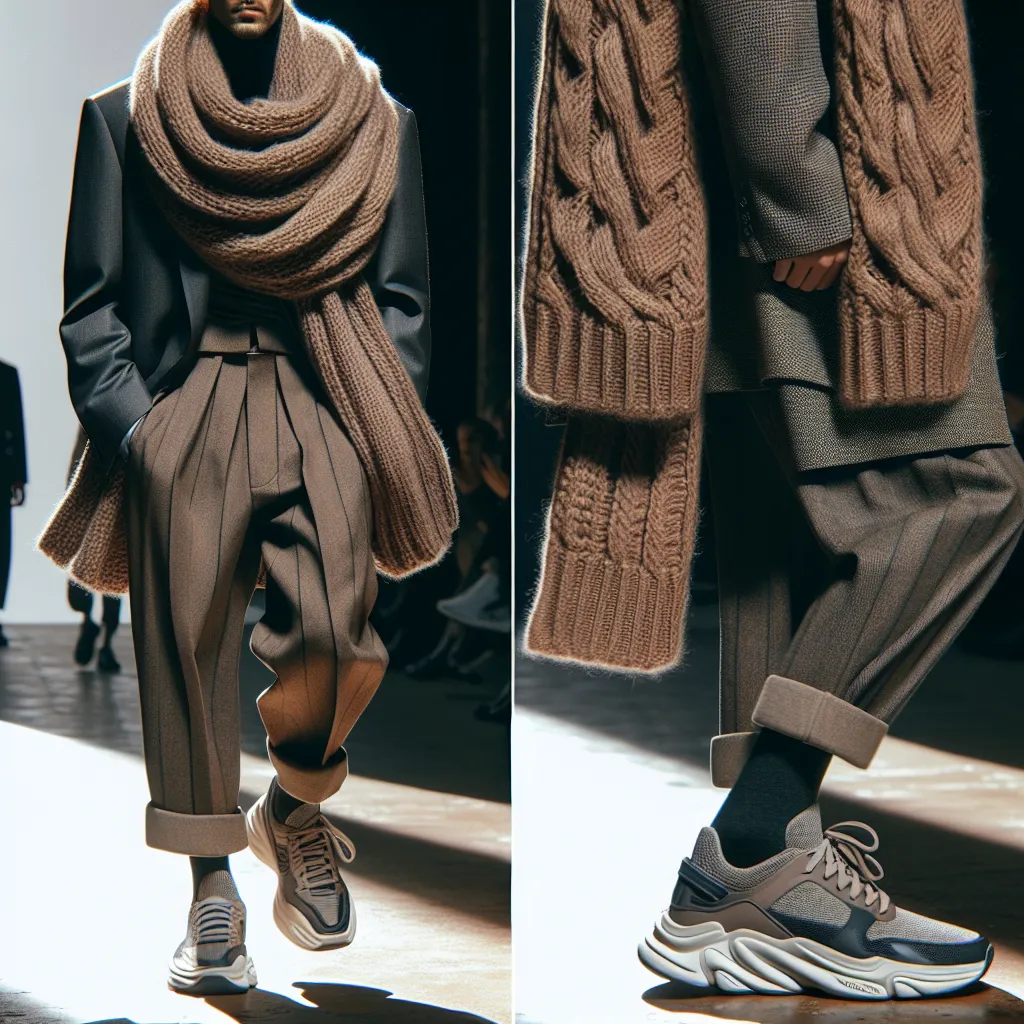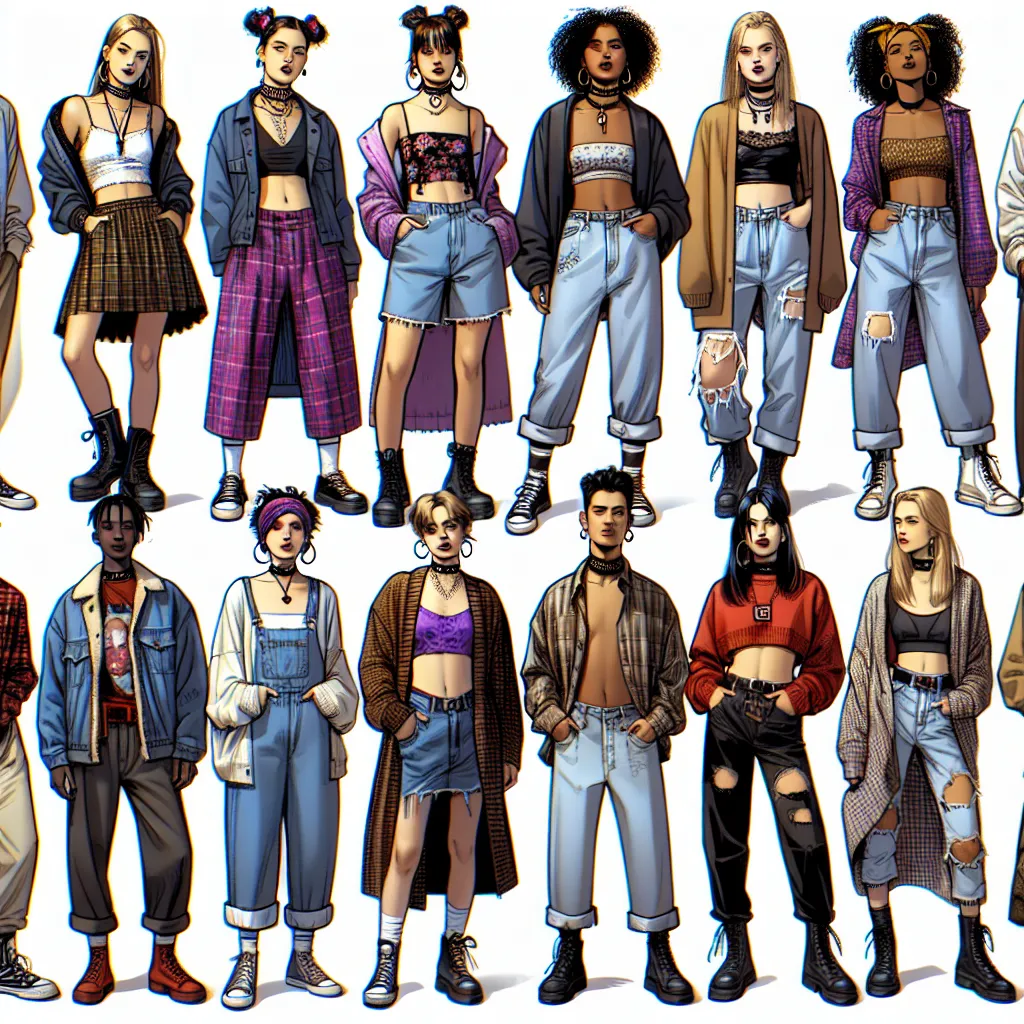Sustainable Fashion: A Growing Movement
Sustainable fashion is no longer just a trend, but a growing movement that is reshaping the entire fashion industry. As consumers become more aware of the environmental and social impact of fast fashion, they are increasingly seeking out sustainable alternatives. This shift in consumer behavior has led to a surge in demand for eco-friendly and ethically produced clothing and accessories.
One of the current trends driving the rise of sustainable fashion is the increasing use of recycled and upcycled materials. Designers and brands are finding innovative ways to repurpose fabrics and materials, reducing the need for new resources and minimizing waste. Moreover, the emphasis on timeless and versatile designs is contributing to a shift towards a more sustainable and circular fashion economy.
Another key aspect of the sustainable fashion movement is the focus on fair labor practices and supply chain transparency. Consumers are increasingly demanding greater visibility into the production processes of their clothing, from the sourcing of raw materials to the conditions of the garment workers. This has prompted many fashion brands to adopt ethical and transparent practices, ensuring that their products are not only environmentally sustainable, but also socially responsible.
Looking ahead, the future prospects for sustainable fashion are promising. With advancements in technology, such as the development of sustainable alternative materials and eco-friendly manufacturing processes, the industry is poised for even greater innovation. Furthermore, as more fashion companies integrate sustainability into their core values, the availability of sustainable options is likely to become more widespread and accessible to a larger audience.
In conclusion, sustainable fashion is a growing movement that is reshaping the industry by promoting eco-friendly practices, ethical production, and supply chain transparency. As consumers continue to drive demand for sustainability, the future of fashion is taking a greener and more responsible direction.
Innovation and Technology in Sustainable Fashion
As the fashion industry continues to embrace sustainability, innovation and technology are playing a pivotal role in shaping the future of sustainable fashion. With the increasing demand for eco-friendly and socially responsible clothing, designers and manufacturers are turning to cutting-edge technologies to revolutionize the way fashion is produced, consumed, and recycled.
One of the key trends in sustainable fashion is the use of innovative materials and production techniques. Advances in fabric development have led to the creation of groundbreaking textiles made from recycled plastics, organic cotton, and even agricultural waste. Furthermore, 3D printing technology is being utilized to minimize waste by producing clothing items with precision, ensuring that materials are used efficiently.
In addition to material innovation, technology is also being harnessed to improve supply chain transparency and traceability. Blockchain technology, for example, is being employed to provide consumers with real-time information about the origins of their garments, ensuring that ethical and sustainable practices are being followed throughout the production process.
Moreover, the rise of digital platforms and e-commerce has enabled brands to reach a wider audience with their sustainable offerings, reducing the reliance on traditional brick-and-mortar stores and their associated environmental footprint. Virtual fitting rooms and augmented reality experiences are enhancing the online shopping experience, making it easier for consumers to make informed and sustainable purchasing decisions.
Looking ahead, the future prospects of innovation and technology in sustainable fashion are promising. From the development of biodegradable textiles to the use of artificial intelligence to optimize production processes, the intersection of fashion and technology is set to drive further advancements in creating a more sustainable and ethical industry.
Ethical Practices and Transparency in the Fashion Industry
The rise of sustainable fashion has brought about a shift in consumer awareness towards ethical practices and transparency in the fashion industry. As more and more people become conscious of the environmental and social impact of their purchases, brands are under increasing pressure to adopt ethical practices and be transparent about their supply chain and production processes.
One of the current trends in sustainable fashion is the demand for transparency. Consumers want to know where and how their clothes are made, and they expect brands to be open and honest about their manufacturing processes. This has led to a rise in certifications and labels that indicate a brand’s commitment to ethical and sustainable practices, such as Fair Trade certification, organic certifications, and B Corp certification.
Furthermore, ethical practices in the fashion industry also extend to the treatment of workers. Consumers are increasingly concerned about the working conditions of garment workers and are demanding fair wages and safe working environments. As a result, brands are being urged to ensure that their workers are treated ethically and are provided with fair compensation.
In the future, the fashion industry is likely to see a greater emphasis on transparency and ethical practices. As technology advances, innovations such as blockchain and digital tracking systems may be used to provide consumers with even greater visibility into the supply chain of their clothing. Additionally, as consumer demand for sustainable and ethical fashion continues to grow, it is expected that more brands will integrate these practices into their core business strategies.
The Future of Sustainable Fashion: Challenges and Opportunities
The future of sustainable fashion presents both challenges and opportunities for the industry. One of the key challenges is the need for widespread adoption and implementation of sustainable practices across the entire supply chain. This includes sourcing eco-friendly materials, reducing water and energy consumption, and ensuring ethical labor practices. While many companies have made significant strides in these areas, there is still much work to be done to achieve widespread sustainability.
Another challenge is the need for greater consumer education and awareness. Many consumers are still unfamiliar with the concept of sustainable fashion and the impact their purchasing decisions can have on the environment. Educating consumers about the benefits of sustainable fashion and empowering them to make more eco-conscious choices will be crucial for the industry’s future success.
However, amidst these challenges, there are also significant opportunities for the future of sustainable fashion. Technological advancements, such as the development of innovative sustainable materials and production methods, offer great potential for reducing the industry’s environmental footprint. Additionally, the growing demand for sustainable products presents a major opportunity for brands to differentiate themselves in the market and attract environmentally conscious consumers.
Furthermore, the rise of digital platforms and social media has enabled greater transparency and accountability within the fashion industry. This has allowed consumers to demand more ethical and sustainable practices from brands, creating a powerful incentive for companies to prioritize sustainability.
In conclusion, while the future of sustainable fashion presents its challenges, it also offers numerous opportunities for innovation and positive change. By addressing these challenges and capitalizing on the opportunities, the fashion industry can continue to make meaningful progress towards a more sustainable and ethical future.




